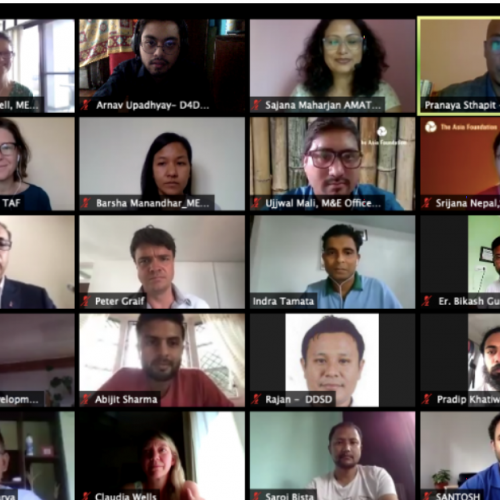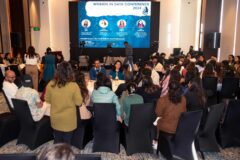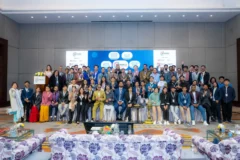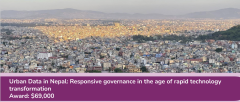
Report – How can data support businesses in Nepal?
October 11, 2019
DoLab workshop
September 30, 2020To launch Phase II of the D4D programme in Nepal which aims to develop data and information ecosystems at the provincial and local spheres with local stakeholders who have the knowledge and capabilities to demand, produce and use data for evidence-based decision-making that addresses local development challenges.
On the 11 August 2020, The Asia Foundation (TAF) organized a virtual event on Zoom to launch the Data for Development (D4D) Programme Phase II in Nepal for the ‘Strengthening of Local Data Ecosystems at the Provincial and Local Spheres to Support the Use of Evidence for Development’. The event brought together 85 participants from various backgrounds with the following objectives; introduce the Data for Development Programme Phase II to a wider stakeholder; reach out to and connect with the stakeholders for Phase II and provide opportunities for the audience to feed their experience and views into the D4D process and achieve objectives set by D4D.
Speakers included Meghan Nalbo (Country Representative, TAF), Lisa Honan (Country Director of Department for International Development, DFID, and Acting Ambassador, British Embassy Kathmandu), Craig Irwin (Statistics Adviser, Department for International Development), Kewal Prasad Bhandari (Member Secretary, National Planning Commission) and Sajana Maharjan Amatya (Program director, D4D). All of them were in consensus on the importance of data for decision-making and its decentralization for the development of any country. Importance of D4D, especially in regards to working with provincial level government and strengthening the country’s data eco-system, was also largely discussed.
Using zoom’s breakout session, participants were involved in different discussions in regards to the issue of data. The topics included; gaps and challenges in terms of coordination and collaboration among and between federal, provincial and local governments on the issues of data governance and statistics production, lessons learned from the current crisis (COVID-19) about when and how data is used for decision-making, What have we tried and what should we not repeat in terms of demand, sharing, and use of data, Who are the “game changers” these days when it comes to using data for decision-making? What examples do we want to draw from ?
Closing remarks of the program was provided by : Carolyn O’Donnell (MERL Director, TAF) where she highlighted how everyone was a key player in data and data governance as roles varied not only between those who demanded and supplied data but significant role was also played by those who mediated between organizations and governmental bodies, especially with the on-going process of federalization where roles and responsibilities were changing.




